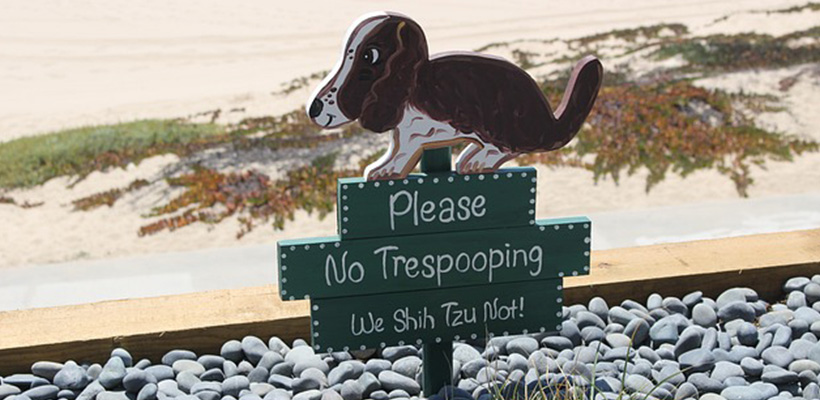
This article is contributed by guest author Tim Smith (Founder of Dogaspet.com).
Understanding The Environmental Impact Of Dog Poop And How To Reduce It
It’s a problem that nobody likes to talk about but everyone is dealing with – dog poop! It’s smelly, unsightly, and can be hazardous to our health if not disposed of safely. But did you know it can also be bad for the environment? That’s right, even Fido’s doo-doo can have an environmental impact.
So, let’s take a look at the “why” behind why is dog poop bad for the environment and what you can do to reduce its potential negative effects on our planet. Get ready for some furry facts about pet waste!
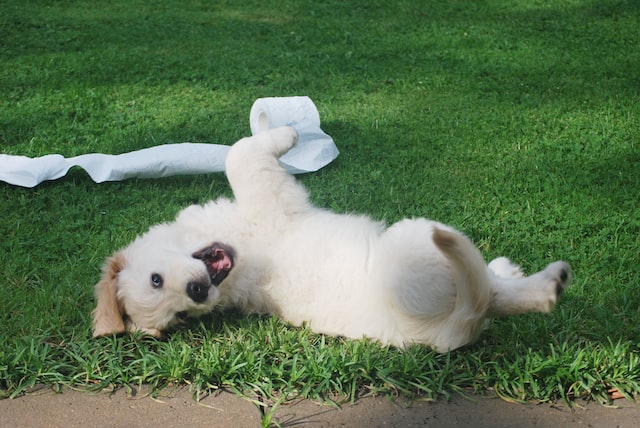
Why is dog poop bad for the environment?
According to the USDA, dog waste is not only a smelly nuisance, but it can also be highly detrimental to the environment. By not cleaning up after your pet, you are effectively polluting creeks, rivers, and lakes due to their high nitrogen and phosphorus content which depletes oxygen levels essential for aquatic life survival.
It also encourages algae growth, which can further block sunlight from reaching the water, making it even less inhabitable. Bacteria in dog poop are also a major environmental concern as it can seep into soil and groundwater, potentially polluting drinking water sources and causing diseases such as e. coli and salmonella. Yikes!
In particular, meat-eating dogs contain more bacteria in their poop which can be even more damaging to the environment. Not to mention that pet waste can attract rodents, raccoons, and other critters in search of food.
How stormwater can aggravate the pollution
Stormwater is one of the biggest culprits when it comes to pet waste pollution. Rain or melting snow flows across paved surfaces, lawns, and storm drains, picking up all manner of pollutants on its way.
And unfortunately for us, dog poop is one of those nasty little critters that loves riding along with the stormwater!
If pet waste isn’t properly disposed of, it can contribute to stormwater pollution and contaminate streams, rivers, and lakes.
Not only is this gross, but the pollutants in dog poo can cause illness in both people and animals alike. So, if you don’t want your local watershed being taken over by bacteria-filled slop soup, be sure to dispose of your pup’s poo responsibly!
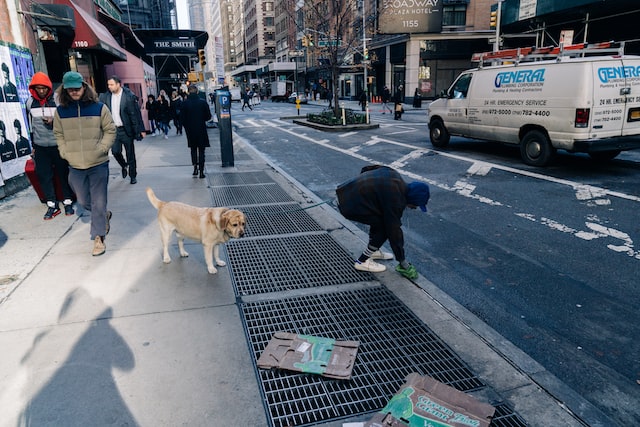
5 Solutions To Reduce Dog Waste
It’s time to take this doo-doo dilemma seriously! To help keep our water sources clean and safe, let’s check out some of the best solutions for reducing dog waste in our communities and environment:
1. Pick up after your pup! (Obviously)
As self-evident as it may seem, the simple solution is to pick up your pet’s poo, even in your own garden. Not only will this help keep your environment clean, but it is also a courtesy to your neighbors who don’t like to step in it.
2. Practice proper pet waste disposal methods
After picking up Fido’s poo, make sure to dispose of it in the appropriate manner. Instead of adding smelly stools to your regular trash or leaving them on the ground, try throwing them away in a designated dog poop bin or flushing solids down the toilet.
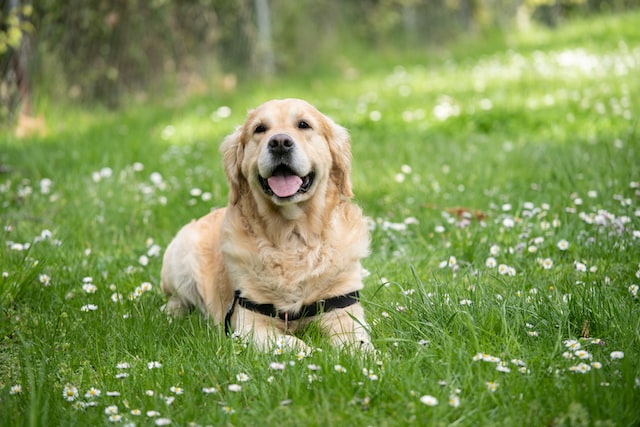
3. Create a designated area for your dog
If you have a backyard, consider setting up an area specifically for your pup to do their business. This way, they’ll know exactly where to go and you won’t have to worry about tracking their dog poop across the garden!
4. Build an in-ground septic tank
If you’re a homeowner with a bit of spare land and some extra time, consider investing in an in-ground septic tank to store pet waste. This will effectively break down the waste and keep it out of sight, smell, and mind. Plus, you’ll have a fancy new addition to your backyard!
5. Composting pet waste
If you are a true green-minded environmentalist, you can compost your pet’s poop with the rest of your garden scraps and turn it into nutrient-rich soil. This way, you can reduce the environmental impact of waste while getting some awesome gardening benefits at the same time!
Keep in mind, due to its bacteria and high acidity content, dog waste isn’t the best material to compost and should not be used on edible plants.
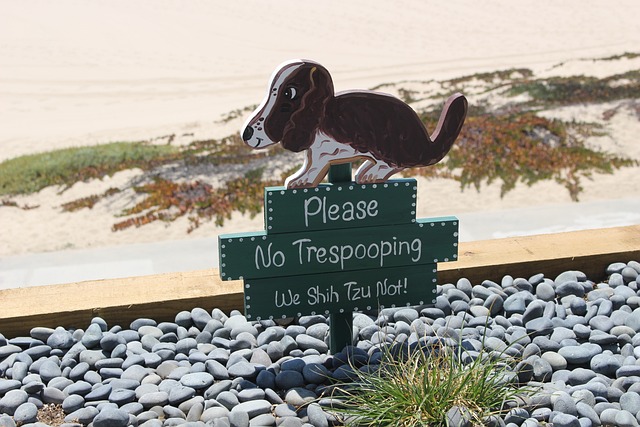
Your Dog’s Poop Is Not As Precious As You Think!
The myth that dog poo is a magical potion for your garden just isn’t true. In fact, it can be hazardous to the environment if it isn’t disposed of correctly. But put it in the compost pile and you’ve got yourself some supercharged soil – just don’t put it on anything you plan on eating!
So don’t think of pup poo as a precious commodity. Instead, grab that pooper scooper, and let’s get to work! With a few simple steps, we can help reduce pet waste pollution and keep our environment clean!
